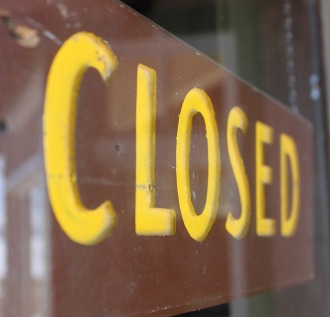Exclusive Practices ‘close all the time’ and it ‘should not be assumed’ it is a problem, NHS England has said in response to Pulse’s investigation that found almost 100 practices have contacted their LMCs in England about potentially closing,
Pulse revealed this week that at least 109 practices in the UK – including 91 in England – have already approached their LMCs about potentially closing as a result of funding and recruitment pressures.
But NHS England said that closures happen ‘all the time’ and they should be seen ‘in the context of local provision’.
GP leaders said that this showed a ‘worrying level of complacency’ from NHS England.
An NHS England spokesperson said: ‘Practices close (and open) all the time and it should not be assumed that this is a problem or a reduction of service; it needs to be seen in the context of local provision.’
‘Examples of closures might include: closure of surgery or premises in order to move to a different, newer or shared facility; practice mergers to provide a broader range of services for a greater cohort of patients; death of a single handed practitioner.’
Related stories
Can GP practices be brought back from the brink?
Are practices closing in your area?
Scores more practices plan for closure as at-risk tally hits 109
But Dr Richard Vautrey, deputy chair of GPC, said that this response failed to appreciate the problems faced by general practice.
He said: ‘The Pulse survey is further very worrying evidence of the growing crisis facing general practice and which is increasingly impacting on patients. It is not only a disaster for the practices concerned but there is a serious domino effect for surrounding practices who suddenly have to pick up large numbers of extra patients.’
‘The response from NHS England shows a worrying level of complacency. There is no doubt that general practice is in the midst of a serious crisis and this is having a real impact on patient services. This is a crisis that requires the Government and NHS England to no longer make excuses but to take urgent action to address and they must start listening to our “Your GP cares” campaign and responding to it.’
Local leaders have warned that the crisis is the ‘worst seen in 20 years’, and that it could get worse following poor GP training intake figures in August.
Dr Mark Sanford-Wood, chair of Devon LMC, said: ‘I’ve been involved with the LMC for 20 years and I’ve never seen this before. For this to start happening now is significant.’
In Wales, where 14 practices have either handed in their contracts or have considered closing, the Welsh Government is looking at ways of solving the recruitment crisis.
A Welsh Government spokesperson said: ‘We recognise there are concerns about GP recruitment and retention in parts of Wales. Where there are recruitment issues which need to be addressed, the Welsh Government is working in collaboration with the Royal College of GPs, the Wales Deanery, GPC Wales and health boards to promote Wales as an attractive place to live and work.’
‘These include developing new training and recruitment schemes for GPs, considering different contractor models, and looking at how the skills of the whole primary care team can be better used including practices working together locally to help meet the needs of their populations.’
In Scotland, where three practices are at risk because of issues over dispensing, the devolved administration has attempted to tackle this head on.
A Scottish Government spokesperson said: ‘The Scottish Government carried out a full review around access to prescribing and dispensing medicines for communities in rural and remote areas and the impact a new pharmacy might have on their local GP services. The responses to that consultation have been independently analysed and showed broad support for our proposals – the amended regulations build on those proposals.’
‘The new arrangements which came in to last month, are intended to promote stability of GP and pharmaceutical services in rural areas, whilst also ensuring local communities across Scotland have adequate access to a qualified pharmacist.’
Pulse July survey
Take our July 2025 survey to potentially win £1.000 worth of tokens














